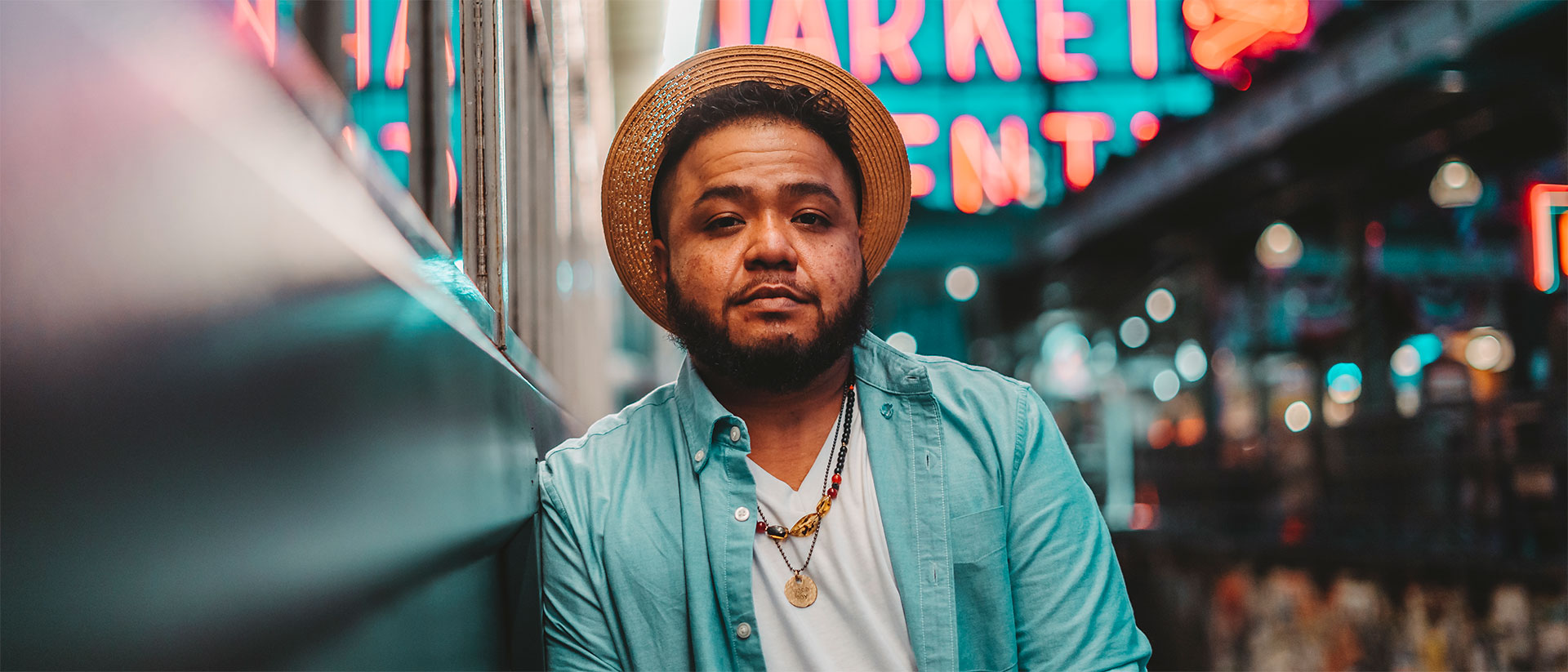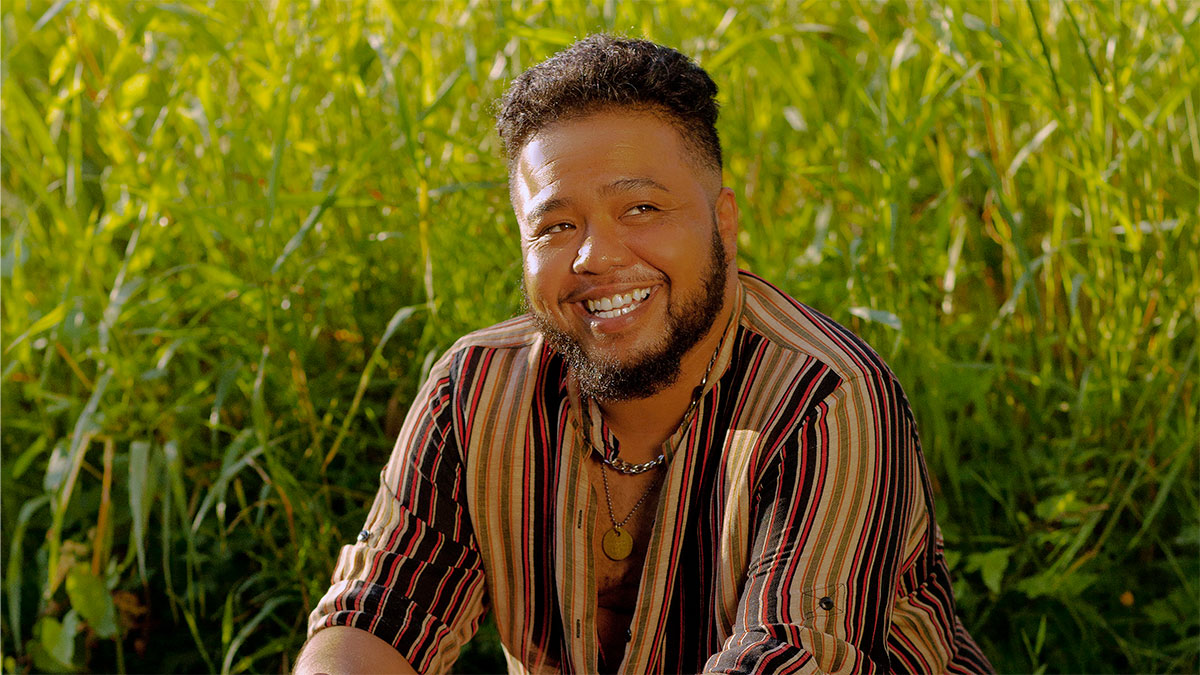- be_ixf; php_sdk; php_sdk_1.4.18
- 68 ms
- iy_2025; im_10; id_10; ih_16; imh_52; i_epoch:1.76014032805E+12
- ixf-compiler; ixf-compiler_1.0.0.0
- py_2025; pm_10; pd_08; ph_06; pmh_55; p_epoch:1.75993175528E+12
- link-block; link-block_link-block; bodystr
- pn_tstr:Wed Oct 08 06:55:55 PST 2025; pn_epoch:1.75993175528E+12
- 0 ms
- be_ixf; php_sdk; php_sdk_1.4.18
- https://sou.edu/academics/ebo-barton-shares-their-journey-with-sou-students/
- https://sou.edu/academics/ebo-barton-shares-their-journey-with-sou-students/

Ebo Barton, professional slam poet, shares their journey with SOU students
October 26, 2021
By Sophia Lorusso (she/her), Junior English Major.
Pictured above: Ebo Barton photo by Cameron Thomsen
On September 21, 2021, SOU hosted a poetry slam by Ebo Barton during the Week of Welcome. Ebo Barton is a Black, Filipino, non-binary and transgender slam poet. In 2020, they released their first book of poems, Insubordinate, which has now collected a few titles from the Washington State Awards. In addition to being a poet, they are also an artist, educator, and activist.
Sophia Lorusso: Tell me about your journey to becoming the writer you are today.
Ebo Barton: I started my journey as a poetry slam poet. I found competition to be helpful; the points system was helpful, not in a desire to “win” necessarily but to do better than the last time. I also found a community of poets that workshopped their pieces with each other, constantly challenged each other to do better, while all of us wrote about very tender and personal experiences. The local scene in Seattle was integral in my development as a writer. Having people who check in on what you’re producing, willing to offer feedback on writing and performance was the most important tool I gained when I entered the community.
“Finding a community of writers exposed me to other art like theater, where I found opportunities to develop new skills or try new things.”
— Ebo Barton
SL: Did you dabble in other styles of writing before slam poetry? If so, what other types of writing interested/interests you?
EB: Finding a community of writers exposed me to other art like theater, where I found opportunities to develop new skills or try new things. I wrote a screenplay and was able to see it come to life. Before slam poetry, I did a lot of journal writing and essay writing. In high school, I wanted more than anything to be a journalist. As I grew more into my writer identity, I learned that I didn’t want to report, I wanted to make people understand my and other people’s humanity. It wasn’t until I discovered performance poetry and spoken word that I could make that happen.

Photo by J. Rycheal.
SL: I know you released your first collection of poetry, Insubordinate, not too long ago — what was the publishing process like? Is there anything you wish you would have done differently?
EB: To be honest, Insubordinate is an independently published work. My publishing process was deciding on the content of the book from my collection of work, having four editors read through for editing throughout every step, collaborating with a visual artist for the book cover, planning a book launch, making consignment agreements with local bookstores, create and following a marketing plan and reviewing with legal to ensure that my original work is protected. While this list is short, the content is difficult and challenging. Once the creative writing is over, the other parts of this are very technical. It requires a lot of patience, determination and to be real, long nights. Self-publishing and independent production require a lot of work by the author. The biggest benefit of independent production is you retain control over your work and where you will see it. I was able to keep companies whose ethics I don’t agree with from selling my book, choose editors that were culturally appropriate and be part of the production process. The only thing I wish I would’ve done differently was to produce the audiobook simultaneously with the physical book. Audiobooks are not only a very important accessibility tool, but many people prefer audio as a way of receiving information. I regret not having this available more immediately.
“Your stories are chapters in a single book in a library of every book ever written, so what are you going to say?”
— Ebo Barton
SL: Do you have any advice for those who want to be writers, or more specifically poets?
EB: My advice to poets or writers: Be honest with everyone including yourself, keep going, you deserve to be here too. I have this as a post-it note on my bathroom mirror to remind myself every day. Constantly receiving rejection letters, or “losing” a competition, writers of other genres not being “into” your work or getting a lower grade than anticipated can do terrible things to people’s self-esteem. But reminding yourself that you are always working towards excellence, you are honest, and that you have a place in the global library of writers helps. Your stories are chapters in a single book in a library of every book ever written, so what are you going to say?
Thank you so much to Ebo for participating in this interview. Check them out on social media!
Twitter | Facebook | Instagram
If you’re interested in sharing your story with the English Program blog, contact lorussos@sou.edu.
Like and Follow the English Program page on Facebook for more stories.
Interested in the English program at SOU? Learn more about the programs offered below:
English Home Page | English BA/BS | English Minor | TESOL Certificate Program


